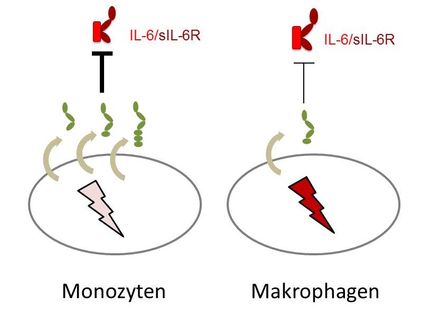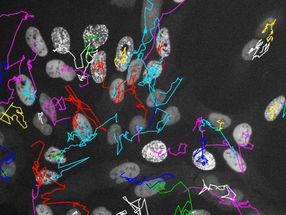Hemp helps to heal
International research team clarifies mode of action of cannabinoids in inflammation
While the German government is planning to relax legislation on the use of cannabis, researchers from the Friedrich Schiller University Jena, together with colleagues from Italy, Austria and the USA, have identified the mode of action underlying anti-inflammatory effects demonstrated by cannabinoids. A few days ago, the federal government took the controversial decision to make the acquisition and possession of small amounts of cannabis exempt from punishment. Provided the German parliament approves the draft bill, the “Cannabis Act” will come into force next year. While some consider this move to be long overdue, others continue to warn strongly against the health risks of cannabis use.
The Jena researchers and their colleagues are now taking a different look at cannabis – at the traditional medicinal plant – with a study published in the journal “Cell Chemical Biology”. The team from the Institute of Pharmacy investigated how certain ingredients from the cannabis plant counteract inflammation. It was already known from previous studies that cannabis is not only an analgesic and an antispasmodic, but also has an anti-inflammatory effect. “However, the reason for the anti-inflammatory effect was largely unclear until now,” says Dr Paul Mike Jordan, who led the study together with Prof. Oliver Werz.
The researchers studied how different cannabinoids, including the psychoactive THC (tetrahydrocannabinol) and CBD (cannabidiol), which is already found in freely available products today, act on human immune cells. “We found that all eight cannabinoids we studied had anti-inflammatory effects,” says Lukas Peltner, doctoral student and first author of the study. “All the compounds we studied were found to inhibit the formation of pro-inflammatory messenger substances in cells while enhancing the formation of inflammation-resolving substances.”
CBD induces a switch in immune cells
CBD in particular proved to be highly effective and the team investigated it in more detail with regard to its mode of action. The researchers were able to determine that CBD activates the 15-lipoxygenase-1 enzyme, which triggers the production of inflammation-resolving messenger substances that subsequently cause the inflammation to subside. “CBD thus induces a switch in the affected cells, so to speak, which steers the inflammatory process from the promoting to the inhibiting side,” explains Dr Jordan. The researchers were also able to confirm these results, which were obtained in cell cultures, in animal experiments on mice.
In the long term, the insights gained could lead to new therapeutic strategies for treating inflammatory diseases, the researchers conclude. The focus should be on CBD, which was the most effective cannabinoid in the study. Previously approved preparations with cannabinoids contain CBD, “but also the psychoactive THC, which can be associated with a variety of side effects”, notes Dr Jordan. Therapeutics containing only CBD would reduce this problem.
Original publication
Other news from the department science

Get the life science industry in your inbox
By submitting this form you agree that LUMITOS AG will send you the newsletter(s) selected above by email. Your data will not be passed on to third parties. Your data will be stored and processed in accordance with our data protection regulations. LUMITOS may contact you by email for the purpose of advertising or market and opinion surveys. You can revoke your consent at any time without giving reasons to LUMITOS AG, Ernst-Augustin-Str. 2, 12489 Berlin, Germany or by e-mail at revoke@lumitos.com with effect for the future. In addition, each email contains a link to unsubscribe from the corresponding newsletter.
























































